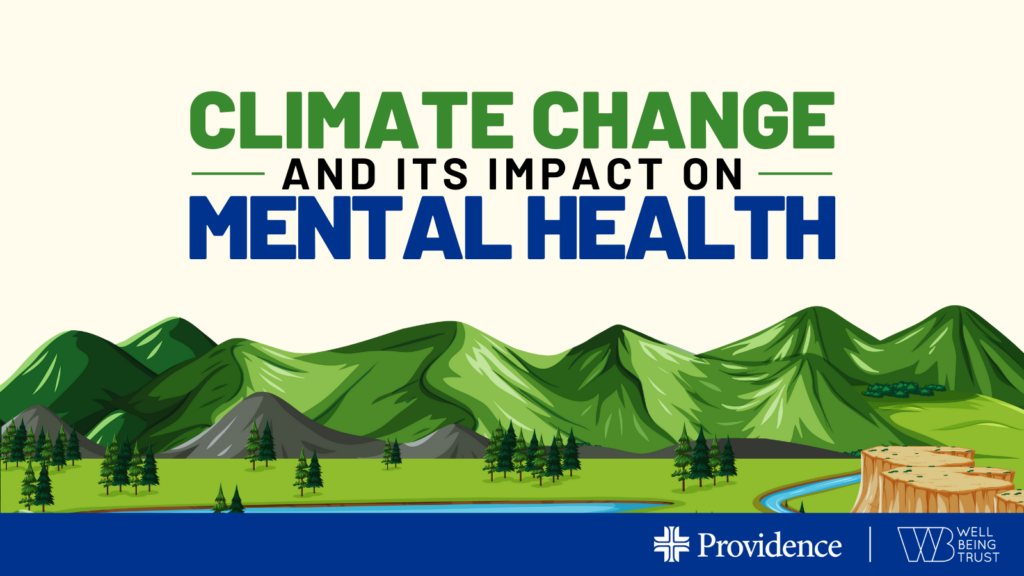This is a continuation of our full piece on climate change and its impact on mental health. Read Part 1.
What Can We Do?
According to a 2020 poll from the American Psychological Association, 70 percent of U.S. adults say they wish there was more they could do to combat climate change, but 51% don’t know where to start. Climate change won’t be reversed alone, but there are ways we can all do our part on an individual and group level.
Individual
To start, it’s important to know what support is available if you personally have been impacted by a climate hazard. The Substance Abuse and Mental Health Services Administration offers many tips and resources for those who’ve experienced said hazard that can help individuals care for themselves and be there for others.
On the more proactive, two ways to be involved are by volunteering or supporting local/state advocacy efforts, both of which can provide their own mental, emotional and social benefits. This makes an impactful individual contribution much less insurmountable.
Organizations
Along with volunteering and advocacy as group activities, organizations can take multiple initiatives to improve their climate impact. As recommended by Forbes, these include working toward carbon neutrality, driving supply chains toward sustainability and internal behavior change.
“The more we can have these conversations, the more awareness we can generate around these issues,” says Blackburn.
Hope for the Future
The intersection of mental health and climate change is becoming a more common topic, but work to combat the climate crisis has been in effect for years, and that was no different in 2023 which, despite being the hottest year on record, saw new technologies that can help address climate change, from heat pumps to solar panels to EVs, are coming to the market and getting cheaper. Climate policy is also developing, from incentives to support new technology to rule-making around pollution. And efforts to help the most vulnerable nations adapt to climate change are growing.
Climate change can feel overwhelming, both in its scale and what it’ll take to solve it, but it’s not a crisis that will alleviate on its own. Action is required, and key in maintaining hope that we overcome it. By working together, we can improve our mental health and our planet.
“Hope is very powerful in administering any large-scale change,” says Schenk. “We’re very aware of the possibilities that come with not addressing this crisis, but our impact can go farther when we feel empowered to make a difference. It’s what motivates me to help lead the way for Providence, participate in national health care conversations, policy dialogues, and help build a more resilience-focused approach to climate change. This work gives me hope that we’ll keep reversing course, for the benefit of everyone.”
Learn what Providence is doing to improve its climate footprint and see our climate action plan.






